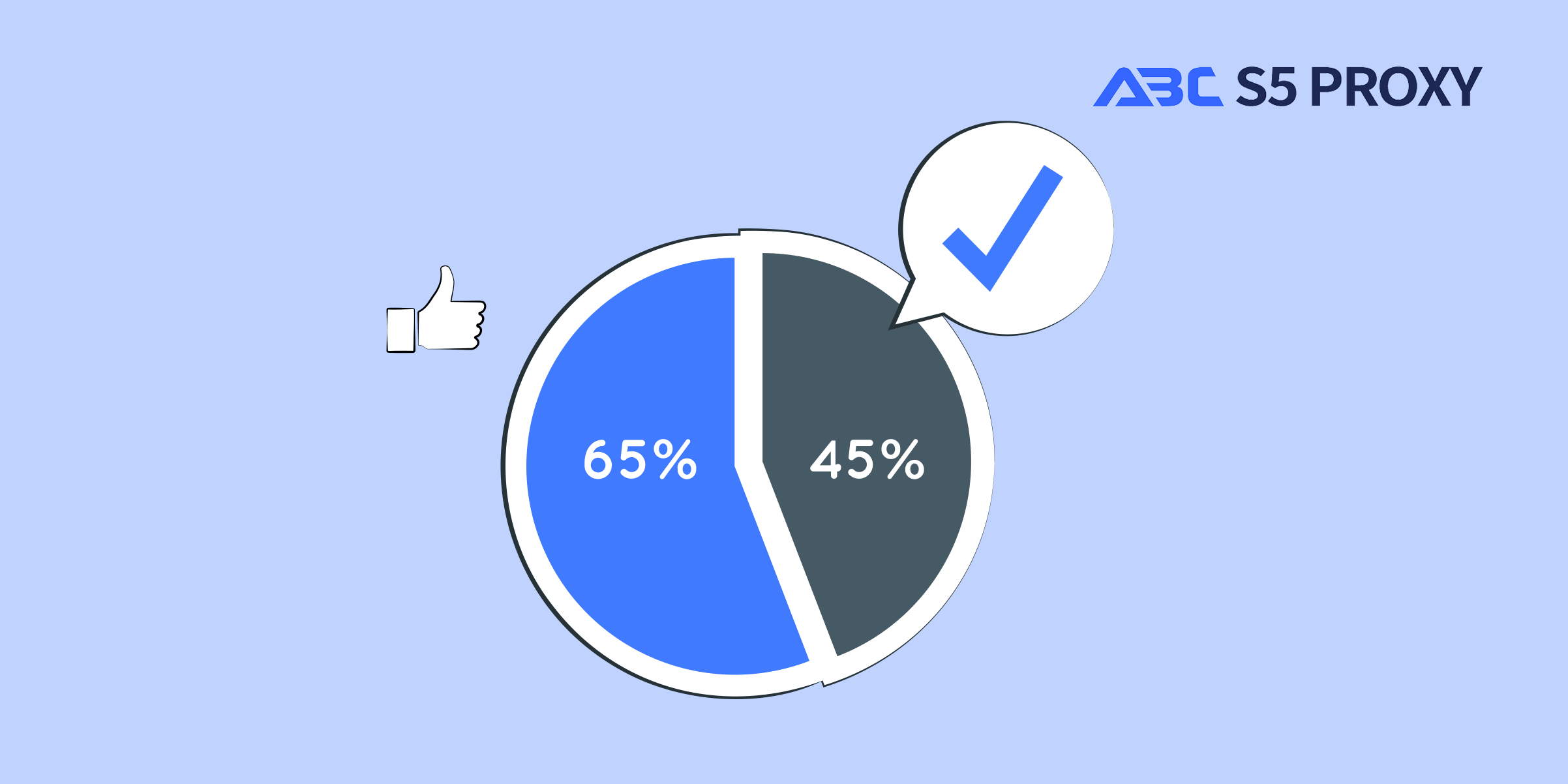Residential Proxies
Allowlisted 200M+ IPs from real ISP. Managed/obtained proxies via dashboard.

Proxies Services
Residential Proxies
Allowlisted 200M+ IPs from real ISP. Managed/obtained proxies via dashboard.
Residential (Socks5) Proxies
Over 200 million real IPs in 190+ locations,
Unlimited Residential Proxies
Unlimited use of IP and Traffic, AI Intelligent Rotating Residential Proxies
Static Residential proxies
Long-lasting dedicated proxy, non-rotating residential proxy
Dedicated Datacenter Proxies
Use stable, fast, and furious 700K+ datacenter IPs worldwide.
Mobile Proxies
Dive into a 10M+ ethically-sourced mobile lP pool with 160+ locations and 700+ ASNs.
Scrapers
Collection of public structured data from all websites
Proxies
Residential Proxies
Allowlisted 200M+ IPs from real ISP. Managed/obtained proxies via dashboard.
Starts from
$0.6/ GB
Residential (Socks5) Proxies
Over 200 million real IPs in 190+ locations,
Starts from
$0.03/ IP
Unlimited Residential Proxies
Unlimited use of IP and Traffic, AI Intelligent Rotating Residential Proxies
Starts from
$1816/ MONTH
Rotating ISP Proxies
ABCProxy's Rotating ISP Proxies guarantee long session time.
Starts from
$0.4/ GB
Static Residential proxies
Long-lasting dedicated proxy, non-rotating residential proxy
Starts from
$4.5/MONTH
Dedicated Datacenter Proxies
Use stable, fast, and furious 700K+ datacenter IPs worldwide.
Starts from
$4.5/MONTH
Mobile Proxies
Allowlisted 200M+ IPs from real ISP. Managed/obtained proxies via dashboard.
Starts from
$1.2/ GB
Scrapers
Web Unblocker
Simulate real user behavior to over-come anti-bot detection
Starts from
$1.2/GB
Serp API
Get real-time search engine data With SERP API
Starts from
$0.3/1K results
Scraping Browser
Scale scraping browsers with built-inunblocking and hosting
Starts from
$2.5/GB
Documentation
All features, parameters, and integration details, backed by code samples in every coding language.
TOOLS
Resources
Addons
ABCProxy Extension for Chrome
Free Chrome proxy manager extension that works with any proxy provider.
ABCProxy Extension for Firefox
Free Firefox proxy manager extension that works with any proxy provider.
Proxy Manager
Manage all proxies using APM interface
Proxy Checker
Free online proxy checker analyzing health, type, and country.
Proxies
AI Developmen
Acquire large-scale multimodal web data for machine learning
Sales & E-commerce
Collect pricing data on every product acrossthe web to get and maintain a competitive advantage
Threat Intelligence
Get real-time data and access multiple geo-locations around the world.
Copyright Infringement Monitoring
Find and gather all the evidence to stop copyright infringements.
Social Media for Marketing
Dominate your industry space on social media with smarter campaigns, anticipate the next big trends
Travel Fare Aggregation
Get real-time data and access multiple geo-locations around the world.
By Use Case
English
繁體中文
Русский
Indonesia
Português
Español
بالعربية

Title: Understanding SSL and HTTPS Proxies
In the ever-evolving landscape of cybersecurity, the use of proxies has become increasingly common. Among the various types of proxies available, SSL and HTTPS proxies are gaining significance due to their ability to enhance security and privacy while browsing the internet. In this blog post, we will delve into what SSL and HTTPS proxies are, how they work, and why they are important in today's digital age.
To begin with, let's understand the basic concepts of SSL (Secure Sockets Layer) and HTTPS (Hypertext Transfer Protocol Secure). SSL is a protocol that ensures secure and encrypted communication between a user's web browser and a server. It establishes a secure connection by authenticating the server and encrypting the data transmitted between the user and the server.
On the other hand, HTTPS is the secure version of HTTP, the protocol used for transmitting data over the internet. It adds an extra layer of security by encrypting the data transferred between the user and the website. When you see the padlock icon in the address bar of your browser, it indicates that the website is using HTTPS to secure the connection.
An SSL or HTTPS proxy acts as an intermediary between a user's device and the internet. It intercepts the communication between the user and the server, encrypts the data, and forwards it securely. This ensures that sensitive information such as login credentials, personal details, and financial data are protected from potential threats like hackers or eavesdroppers.
When a user connects to a website through an SSL or HTTPS proxy, the proxy server establishes a secure connection with the website on behalf of the user. The user's data is encrypted before being sent to the proxy server, which then decrypts the data and forwards it to the website. Similarly, the response from the website is encrypted by the proxy server before being sent back to the user.
By acting as a middleman in the communication process, an SSL or HTTPS proxy ensures that the user's data remains secure and private. It can also cache data, filter content, or block malicious websites to further enhance security and performance.
In today's digital age where cyber threats are on the rise, ensuring the security and privacy of online communications is paramount. SSL and HTTPS proxies play a crucial role in safeguarding sensitive information and protecting users from potential attacks.
- Enhanced Security: By encrypting data transmitted over the internet, SSL and HTTPS proxies prevent unauthorized access and data theft.
- Privacy Protection: SSL and HTTPS proxies mask the user's IP address and encrypt their browsing activities, ensuring anonymity and privacy.
- Content Filtering: SSL and HTTPS proxies can filter out malicious websites, ads, or unwanted content, thereby providing a safer browsing experience.
- Bypassing Restrictions: In some cases, SSL and HTTPS proxies can help bypass geographical restrictions or censorship imposed by governments or organizations.
In conclusion, SSL and HTTPS proxies are powerful tools that offer a secure and private browsing experience. By encrypting data, protecting sensitive information, and enhancing online security, they have become essential components in the realm of cybersecurity. As the internet continues to evolve, utilizing SSL and HTTPS proxies can help users navigate the digital landscape safely and confidently.
Featured Posts
Popular Products
Residential Proxies
Allowlisted 200M+ IPs from real ISP. Managed/obtained proxies via dashboard.
Residential (Socks5) Proxies
Over 200 million real IPs in 190+ locations,
Unlimited Residential Proxies
Use stable, fast, and furious 700K+ datacenter IPs worldwide.
Rotating ISP Proxies
ABCProxy's Rotating ISP Proxies guarantee long session time.
Residential (Socks5) Proxies
Long-lasting dedicated proxy, non-rotating residential proxy
Dedicated Datacenter Proxies
Use stable, fast, and furious 700K+ datacenter IPs worldwide.
Web Unblocker
View content as a real user with the help of ABC proxy's dynamic fingerprinting technology.
Related articles

How to set up automatic retries for Requests
This article explains in detail how to implement the automatic retry mechanism of the Python Requests library, and combines it with proxy IP services (such as abcproxy) to provide a stability enhancement solution to solve the problem of request failure in high-concurrency scenarios.

How does Polish proxy IP optimize network performance
This article analyzes the core value and application scenarios of Polish proxy IP, explores its mechanism for optimizing network performance, and introduces abcproxy's technical advantages and service capabilities in the field of Polish proxy IP.

How to configure Curl Proxy Config File to improve network request efficiency
This article analyzes in detail the configuration method and practical skills of Curl Proxy Config File, explores how to optimize the stability and security of network requests through proxy IP services, and provides efficient solutions for developers and enterprises.